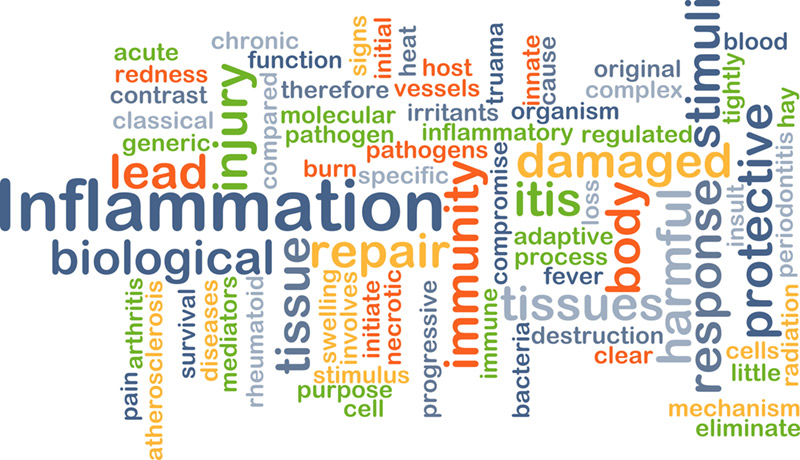The Anti-Inflammatory Diet: What It Is, Who Needs It, and How to implement an anti-inflammatory plan?
Understanding Inflammation: Acute vs. Chronic
Inflammation is the body’s natural defense and healing process. It is the process by which the immune system recognizes and removes harmful and foreign stimuli and begins the healing process and can be acute or chronic.
Acute inflammation begins quickly and intensifies over a short period, with symptoms lasting from a few hours to several days. This response is essential for survival—it’s how the body reacts to internal injuries or external threats like trauma or harmful substances. When properly regulated, acute inflammation helps eliminate the threat, supports tissue repair, and restores balance within the body.
Chronic inflammation, which is the focus of this blog, lasts much longer, often months or even years. It occurs when the body remains in a persistent, low-grade state of alert, even without an active injury or infection. Over time, this ongoing inflammation can contribute to the onset and progression of numerous chronic diseases, including cancer, cardiovascular disease, and neurocognitive decline.
The good news? What you eat can decrease inflammation.
Why Implement an Anti-Inflammatory Diet:
Eating with intention can improve chronic conditions, extend lifespan, and even slow aging. As food as medicine suggests, what you eat has the power to heal.
Benefits of maintaining an anti-inflammatory diet include:
- Symptom relief – Manage chronic arthritis, lupus, and inflammatory bowel disease
- Better overall health – Improve digestion and sleep while lowering stress and anxiety
- Weight management – Whole, unprocessed foods can support healthy weight management
- Disease prevention – Lower your risk of heart disease, diabetes, cancer, and autoimmune conditions (sucn as Hashimoto’s and IBS)
Dietary Recommendations for an Anti-Inflammatory Diet from a Long Island RDN
This diet emphasizes nutrient-dense, whole foods that fight inflammation:
Foods to Choose:
- Fruits and vegetables (packed with antioxidants, fiber, and anti-inflammatory nutrients
- Whole grains (provide fiber and essential nutrients)
- Legumes ,including beans, lentils, and chickpeas (offer fiber and protein)
- Nuts and seeds (rich in healthy fats and antioxidants)
- Fatty fish (rich in omega-3s)
- Olive oil (healthy fat source)
- Herbs and spices ( anti-inflammatory compounds)
Foods to Limit or Avoid:
- Ultra-processed foods and added sugars
- Refined carbs (white bread, pastries)
- Red and processed meats
- Excessive alcohol
- Saturated and trans fats and certain oils (soybean, corn oil)
Who Can Benefit?
This diet is ideal for nearly everyone, but is especially helpful for those with:
- Chronic inflammatory conditions – Arthritis, lupus, irritable bowel disease (Crohn’s, colitis)
- Cardiovascular/heart disease, high blood pressure, or obesity – These conditions have been linked to inflammation
- Type 2 diabetes or prediabetes – Supports insulin sensitivity and blood sugar control
- Gut health concerns – Promotes a healthier microbiome
- Chronic pain or joint issues – Helps reduce inflammation-related discomfort
- Chronic disease risk – Lowers risk of heart disease, cancer, and more
- Athletes – Aids recovery and reduces post-exercise inflammation
- Anyone seeking better overall health – An anti-inflammatory diet provides a strong foundation for lifelong wellness
What Is the Role of a Dietitian in Implementing an Anti-Inflammatory Diet?
A registered dietitian can guide you through every step:
Personalized Guidance & Food Selections
- Identify the right anti-inflammatory foods for you
- Eliminate or reduce inflammatory triggers
Meal Planning
- Develop a realistic, sustainable meal plan
- Provide snack and meal ideas tailored to your preferences
Monitoring Progress
- Track results and adjust as needed
- Address obstacles like cravings or food access
Education
- Understand the science behind inflammation and nutrition
- Make informed choices that support long-term health
Through individualized nutrition therapy, you can reduce or reverse chronic inflammation. I offer online nutrition therapy and consultations for patients across Long Island and New York. With over 30 years of experience, I provide evidence-based support and personalized plans that are practical, sustainable, and enjoyable.
Start your journey to better health today.
Further Reading:



